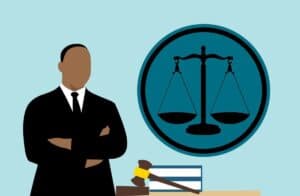Facing criminal charges can be an overwhelming and life-altering experience. Whether the accusation involves a misdemeanor or a felony, having a skilled criminal lawyer on your side is essential. But how exactly does a criminal defense attorney develop a strong case? What steps do they take to protect your rights and work toward a favorable outcome?

A successful defense is never built on guesswork—it’s a combination of strategic planning, legal knowledge, and careful investigation. Here’s a behind-the-scenes look at how criminal lawyers prepare and build a robust defense for their clients.
Initial Consultation and Case Review
Every defense begins with understanding the full picture. During the first consultation, the criminal lawyer meets with the client to discuss the charges, arrest details, and the client’s account of what happened. This is also when the lawyer assesses the potential legal issues and begins developing a theory of defense.
Gathering as much information as possible early on allows the lawyer to start identifying weaknesses in the prosecution’s case.
Investigating the Evidence
A key part of building a defense is analyzing all the available evidence. This includes police reports, surveillance footage, witness statements, forensic tests, and any physical evidence connected to the case.
A criminal lawyer may also work with private investigators or forensic experts to uncover facts that support the defense or contradict the prosecution’s claims. In some cases, new evidence can significantly alter the direction of a case.
Challenging the Prosecution’s Case
One of a criminal lawyer’s main jobs is to scrutinize the prosecution’s evidence for errors, inconsistencies, or violations of the defendant’s rights. This may involve:
- Filing motions to suppress illegally obtained evidence
- Questioning the credibility of witnesses
- Highlighting flaws in forensic testing or procedures
- Reviewing the legality of the arrest and search warrants
If any part of the prosecution’s case is weak or unlawful, the defense can use it to reduce or dismiss charges.
Developing a Defense Strategy
Based on the facts and evidence, a criminal lawyer tailors a defense strategy to the specific case. Common strategies include:
- Alibi: Demonstrating the defendant was somewhere else at the time of the crime
- Self-defense: Arguing the defendant acted to protect themselves or others
- Lack of intent: Showing that the accused did not intend to commit a crime
- Mistaken identity: Proving that someone else committed the offense
The goal is to raise reasonable doubt in the minds of the jury or to leverage the strategy in plea negotiations.
Pretrial Negotiations and Plea Bargaining
Not all criminal cases go to trial. In fact, many are resolved through plea agreements. An experienced criminal lawyer will negotiate with the prosecution to reduce charges, minimize penalties, or explore alternative sentencing options such as probation or diversion programs.
These negotiations require a deep understanding of local laws, court procedures, and the tendencies of judges and prosecutors.
Trial Preparation and Courtroom Representation
If a case goes to trial, the lawyer prepares thoroughly for court. This includes selecting a jury (if applicable), preparing opening and closing statements, examining witnesses, and presenting evidence.
Throughout the trial, the defense attorney works to protect the defendant’s rights, challenge the prosecution’s claims, and present a compelling narrative that supports the client’s innocence or mitigates their involvement.
Defending with Diligence
Building a strong criminal defense is not just about legal tactics—it’s about advocacy, diligence, and dedication to justice. A skilled criminal lawyer brings all of these elements together to provide the best possible outcome for their client.
If you or someone you know is facing criminal charges, it’s important to seek legal representation early. The right attorney can make all the difference in protecting your rights and securing your future.






